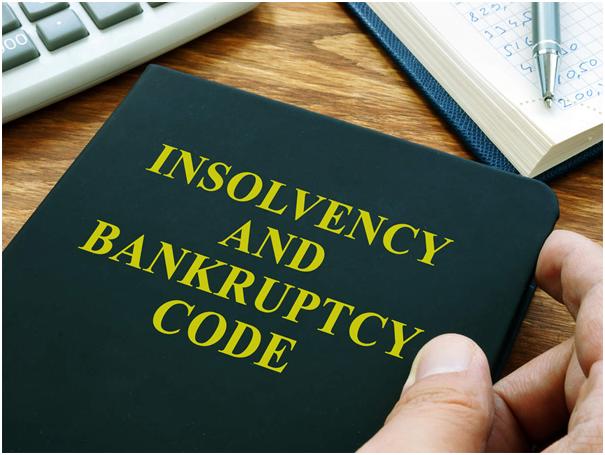M.S. Menon, J.@mdashExt. P. 1 No. TCB 104 dated 1--3--1956 - is a notice issued to the petitioner u/s 35 of the Travancore-Cochin Agricultural income tax Act, 1950, by the 1st respondent, the Agricultural income tax and Sales-tax Officer, Devicolam. It reads as follows:
Whereas in consequent of the definite information I have come (sic) that your Agrl. Income for the year ended 1126 to 1128 had escaped assessment a (sic) propose to assess the said income, I hereby require you to file the return of income for the said period within 3 days of this notice.
consequent" must be a typing error for "consequence". It is not clear what exactly is meant by the words "for the year ended 1126 to 1128". No contention, however, is urged on the basis of those words, and it is agreed, that I may proceed on the assumption that the words are "for the year ended 1126".
2. Apparently an extension of time was sought and obtained. Ext. R1 dated 19--3--1956, a communication sent on behalf of the petitioner, reads as follows:
With reference to your notice G.I. No. T.C. B 104 dated 12--3--56 we beg to inform you that our boss is not in the station. We request you therefore to grant us an extension of three days from today to produce accounts.
The learned Government Pleader submits that "dated 12--3--56" is a mistake for "dated 1--3--56.
3. On 24--3--1956 the 1st respondent passed the following order:
The assessee did not file the return. The case was posted for haering. The assessee''s son appeared with a set of books. The returns also were filed then. There are no subsidiary accounts. No check rolls. No sale bills. No vouchers etc. The assessee returns a net income of Rs. 2767--7--11. The Manjakuzhi Estate is in the replanting stage. Hence no income was returned. Similarly the expenses made also as capital. Hence disallowed. Similar is the case with Bodimettu Thottam. The only yielding estate is at Kombaparai, the extent is 23. 11 ac. The yield disclosed appear to be reasonable. But in the expenses claimed a No. of items in the nature of capital is included. As this cannot be picked out so easily I allow on an average Rs. 100/- per ac. and fix the net taxable income from this as detailed below.
|
Gross Income returned. |
Rs. 12615--4�0 |
|
Less expenses. |
Rs. 2300�0�0 |
|
Balance. |
Rs. 10315/- |
|
� of this is |
Rs. 5158/- |
|
Tax is |
Rs. 179--8--0. |
|
Due date |
24-4--56. (Ext. R2) |
4. Section 35 of the Travancore-Cochin Agricultural income tax Act, 1950, (omitting the proviso thereto) reads as follows :
If for any reason agricultural income chargeable to tax under this Act has escaped assessment in any financial year or has been assessed at too low a rate, the Agricultural income tax Officer may at any time within three years, of the end of that year serve on the person liable to pay the tax or in the case of a company on the principal officer thereof a notice containing all or any of the requirements which may by included a notice under sub-section (2) of Section 17 and may proceed to assess or re-assess such income and the provisions of this Act shall, so far as may be, apply accordingly as if the notice were a notice issued under that sub-section"; and sub-section (2) of section 17 :
In the case of any person whose total agricultural income is, in the opinion of the Agricultural income tax Officer, of such amount as to render such person liable to payment of agricultural income tax for any financial year, he may serve in that year a notice in the prescribed form, requiring such person to furnish within such period not being less than thirty days as may be specified in the notice, a return in the prescribed form and verified in the prescribed manner setting forth (along with such other particulars as may be provided for in the notice) his total agricultural income during the previous year.
The contention of the petitioner is that Ext. P is defective as it gave only a period of three days for furnishing the return.
5. The petitioner did not challenge the validity of Ext. R2 by an appeal u/s 31 of the Act, and so an appeal to the Appellate Tribunal u/s 32 of the Act was not available to him. What he did was to file an application for revision u/s 34. Ext. P. 1 is the order in the revision petition filed by him :
The contention is that the notice served, before the conduct of the case was not valid, having not given him 30 days'' time. It is, however, seen that the party did accept the notice, contend his case before the Assessing Officer and did not complain of inadequate notice. Hence, no material irregularity sufficient to set aside the order has been committed. On merits too, there is no case for interference. The revision petition is accordingly dismissed.
6. The prayer in the petition is for a writ of certiorari quashing Ext. P. 1. There is no specific prayer for the quashing of Ext. R2, the order of assessment with which Ext. P. 1 refused to interfere.
7. As stated in Ext. P. 1 the petitioner did not raise any contention before, the 1st respondent based on the inadequacy of the time allowed by Ext. P. A party by his conduct can disentitle himself to relief under article 226 of the Constitution and I take the view that the petitioner by not raising the question of jurisdiction before the 1st respondent has so conducted himself as to preclude relief even on the assumption that the assessment concerned was made without jurisdiction.
8. In AIR 1927 Mad. 130 (F. B.) it was contended that the orders impugned therein were passed without jurisdiction and should hence be quashed by a writ of certiorari. The petitioner did not raise the question of jurisdiction before the Commissioner of the Corporation of Madras and the Chief Judge of the Court of Small Causes who passed the orders, and the High Court refused the writ on that ground. Coutts-Trotter, C. J., after referring to certain English cases said :
the test that they lay down is whether the applicant armed with a point either of law or of fact, which would oust the jurisdiction of the lower court, has elected to argue a case on its merits before that Court. If so, he has submitted himself to a jurisdiction which he cannot be allowed afterwards to seek to repudiate. We are of opinion that the applicant has so conducted himself as to preclude this Court from exercising a discretionary jurisdiction in his favour. The petition will, therefore, be dismissed with taxed costs.
9. This decision was cited with approval in AIR 1957 S.C. 397 (412).
10. Counsel for the petitioner drew my attention to certain passages in
(1) that the existence of a right of appeal does not take away the right to issue a prohibition and that there is technical obstacle to the co-existence of a right to appeal and to a prohibition.
(2) that if the defect of jurisdiction is apparent on the face of the proceedings, the order of prohibition must go as of right and is not a matter of discretion; and
(3) where, however, the defect is not apparent, but depends on some fact in the knowledge of the applicant which he had the opportunity of bringing forward in the court below and has allowed that court to proceed without setting up the objection, the court has a discretion to refuse the writ and will leave the objector to his remedy by appeal.
I do not consider the judgment as any authority for the proposition that even in cases where the defect of jurisdiction is apparent on the face of the proceedings a party cannot so conduct himself as to preclude relief under article 226 of the Constitution.
As already indicated I entertain no doubt that the petitioner has so conducted himself in the proceedings before the 1st respondent as to disentitle him to a writ of certiorari under article 226 of the Constitution. It follows that this petition has to be dismissed and I order accordingly though in the circumstances of the case without any direction as to costs.

